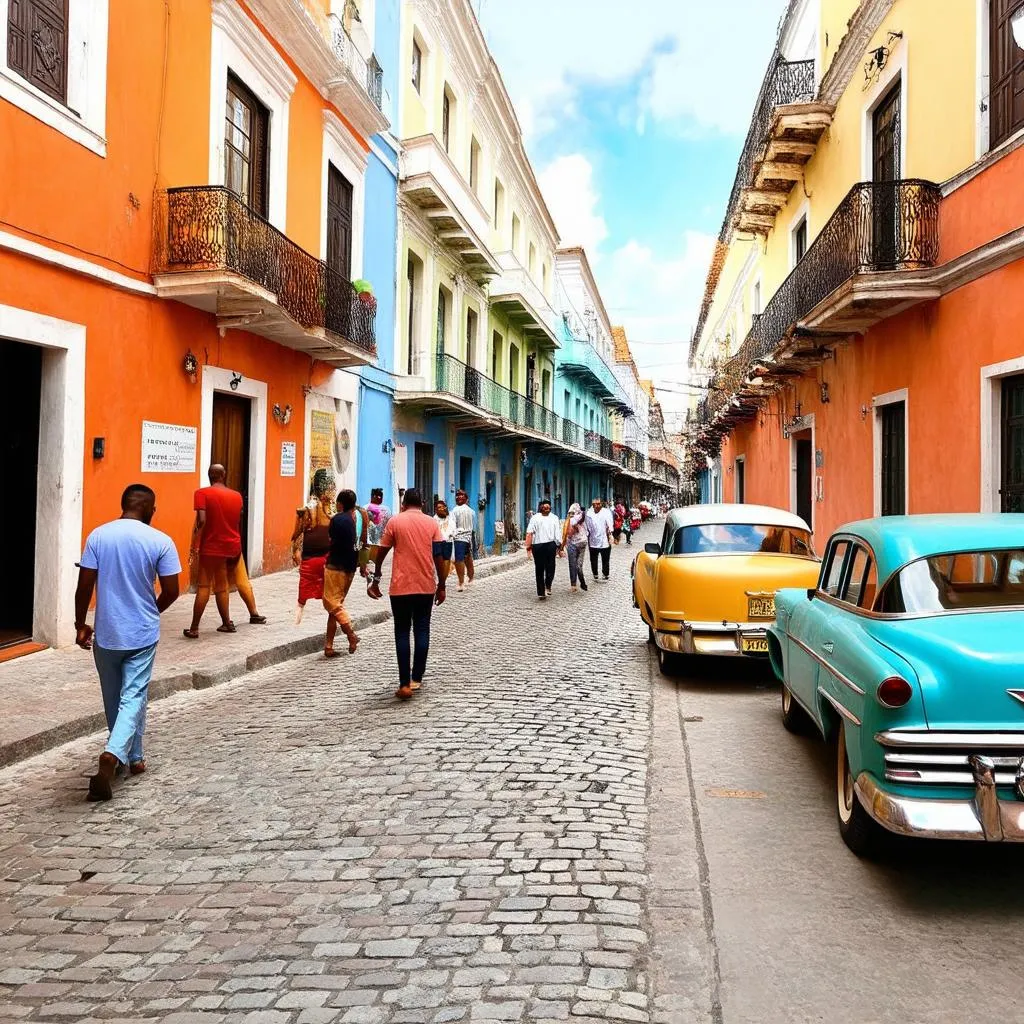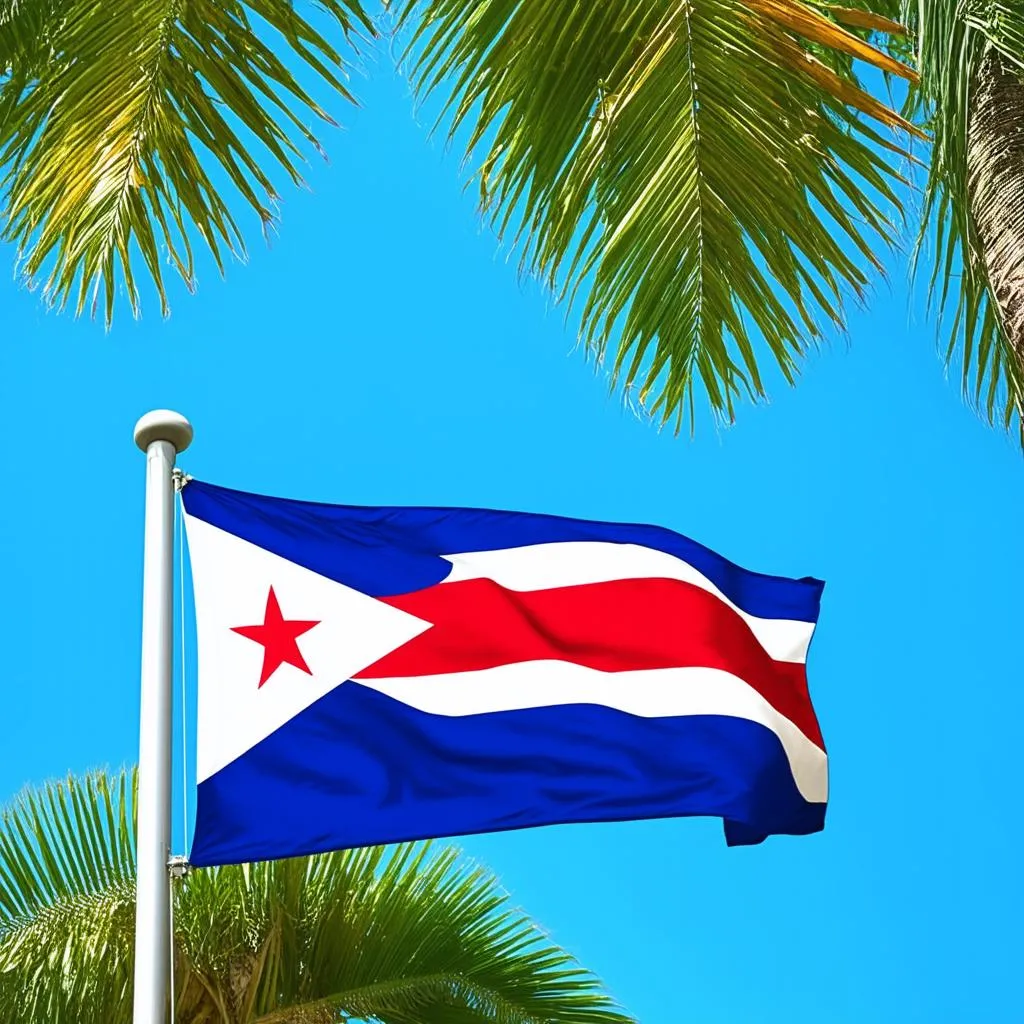Imagine strolling along the vibrant Malecon, sipping on a mojito as vintage cars cruise by, and feeling the rhythm of salsa music pulsing through the air. This is Cuba, a country brimming with history, culture, and a captivating charm that has beckoned travelers for decades. But for Americans, the question often arises: “Is it safe to travel to Cuba?”
Let’s delve into the realities of traveling to Cuba as an American in 2023, separating fact from fiction and exploring how you can experience this captivating island nation safely and responsibly.
Safety in Cuba: A Realistic Perspective
Cuba consistently ranks as one of the safest destinations in the Caribbean for tourists. The country boasts a low crime rate, especially against foreigners. Cubans are generally warm, welcoming, and proud to share their culture with visitors.
However, like any destination, it’s crucial to exercise common sense and caution:
- Petty Theft: While violent crime is rare, petty theft can occur, especially in crowded tourist areas like Old Havana. Be mindful of your belongings, avoid flashing expensive jewelry or electronics, and utilize hotel safes for valuables.
- Scams: Be wary of overly friendly individuals offering unsolicited services or deals that seem too good to be true. Stick to reputable tour operators and exchange currency only at banks or official Cadecas.
- Transportation Safety: Opt for official taxis or ride-sharing services like Cuba Taxi instead of unmarked vehicles. If renting a car, be aware that road conditions can be challenging, and driving at night is not recommended.
Legal Considerations for Americans Traveling to Cuba
Navigating the legal landscape is essential for American travelers heading to Cuba. While restrictions have eased in recent years, it’s vital to understand the nuances:
- Travel Categories: The U.S. government allows travel to Cuba under specific categories, including “Support for the Cuban People.” This category requires engaging in activities that promote meaningful contact with Cuban citizens, supporting private businesses, and fostering cultural exchange.
- Travel Documentation: Americans need a Cuban Tourist Card (Visa), a passport valid for at least six months beyond their intended stay, and proof of travel insurance.
- Spending Restrictions: The use of U.S. credit and debit cards is generally restricted. It’s advisable to bring enough cash (euros or Canadian dollars are recommended) to cover expenses.
Tips for a Safe and Rewarding Trip to Cuba
1. Plan Ahead and Choose Reputable Travel Providers
- Book your trip with a licensed travel agency specializing in Cuba travel. They can guide you through the legal requirements and ensure your itinerary aligns with authorized travel categories.
- Select accommodations with positive reviews from fellow travelers. Casas particulares, privately owned guesthouses, offer an immersive cultural experience and direct support to local entrepreneurs.
2. Embrace Cultural Sensitivity and Respect
- Learn basic Spanish phrases – it goes a long way in showing respect and facilitating communication.
- Engage in respectful conversations with locals, but be mindful of sensitive topics like politics.
- Support local businesses by dining at paladares (privately owned restaurants), purchasing handicrafts directly from artisans, and staying in casas particulares.
3. Stay Connected and Informed
- Purchase a local SIM card at the airport upon arrival to ensure you have access to mobile data and communication.
- Stay informed about current events and any safety advisories issued by the U.S. Embassy in Havana. Their website and social media channels provide valuable updates.
 Safe Streets in Old Havana, Cuba
Safe Streets in Old Havana, Cuba
FAQs About Traveling to Cuba as an American
Can I use my U.S. credit card in Cuba?
U.S. credit and debit cards are generally not accepted in Cuba. It’s essential to bring enough cash (euros or Canadian dollars are recommended for the best exchange rates).
What are some must-visit destinations in Cuba?
Cuba offers a treasure trove of experiences:
- Havana: Immerse yourself in the captivating history and culture of the capital, from exploring Old Havana’s UNESCO-listed streets to enjoying the vibrant nightlife along the Malecon.
- Trinidad: Step back in time in this beautifully preserved colonial town, renowned for its cobblestone streets, pastel-hued houses, and vibrant music scene.
- Viñales: Discover the stunning natural beauty of the Viñales Valley, a UNESCO World Heritage site famed for its lush tobacco fields, limestone cliffs, and traditional farming methods.
How can I support the Cuban people during my trip?
- Stay in casas particulares, dine at paladares, and purchase goods and services directly from local entrepreneurs.
- Engage in meaningful cultural exchanges with Cubans, learn about their lives and perspectives, and share your own experiences.
- Respect Cuban culture and customs, and refrain from engaging in activities that could be perceived as disrespectful or exploitative.
 Cuban Flag Waving in the Wind
Cuban Flag Waving in the Wind
Travelcar.edu.vn: Your Guide to Exploring Cuba
Planning a trip to Cuba can feel like navigating uncharted waters, especially for American travelers. That’s where TRAVELCAR.edu.vn comes in. Our team of travel experts specializes in crafting unforgettable Cuban adventures that comply with all regulations while immersing you in the island’s rich culture.
Contact us today, and let us help you experience the magic of Cuba safely and responsibly!